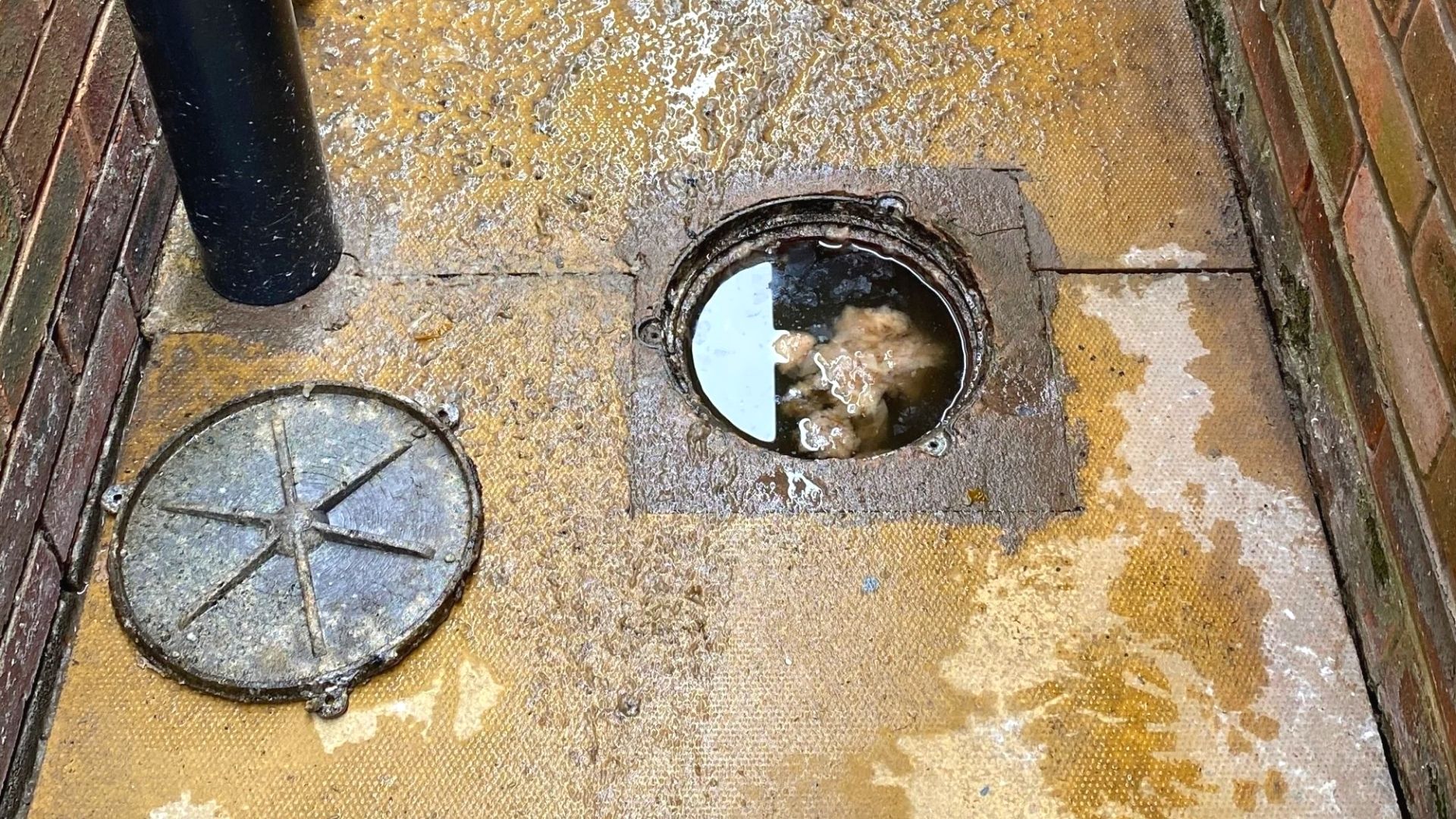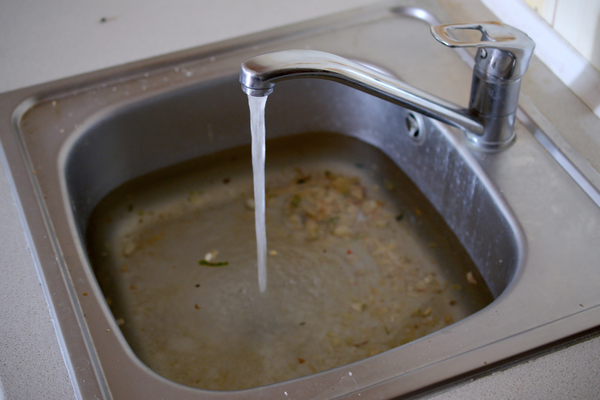They are making several good pointers on Tips for Dealing with Clogged Drains and Sewer Lines as a whole in this post further down.

Introduction
Managing an obstructed drainpipe can be a discouraging experience, disrupting day-to-day tasks and potentially creating damage to your residential or commercial property. However, prior to connecting to plumbing professionals, there are steps you can require to deal with the concern yourself. In this guide, we'll check out do it yourself options and preventive measures to tackle a blocked drainpipe effectively.
Determining the Concern
The primary step in attending to a blocked drain is identifying the indications. Slow-moving drainage, gurgling audios, foul odors emanating from drains, or water support up prevail indicators of an obstructed drainpipe. Determining these indicators early can help stop further difficulties.
Choosing the Right Pipes Solution
When selecting a plumbing solution, consider elements such as experience, licensing, and consumer reviews. Choose a trusted plumber with a track record of high quality handiwork and transparent pricing methods.
Expense Factors to consider
The cost of expert drainpipe cleaning company can vary depending on the intensity of the clog and the plumbing professional's rates. Request quotes from multiple providers and inquire about any service charges to make sure openness and stay clear of shocks.
Safety and security Measures
When trying DIY drain cleaning, prioritize security. Use protective gloves and eyewear to avoid contact with damaging chemicals or germs. Never ever blend various drainpipe cleansing products, as this can create dangerous fumes.
Situation Studies
Real-life examples highlight the effectiveness of do it yourself solutions and the significance of prompt expert intervention in fixing drain blockages.
Common Sources Of Obstructed Drains
Comprehending the factors that contribute to drain pipes obstructions is vital for efficient resolution. Typical offenders include hair, soap residue, oil, food debris, and international things like sanitary products or paper towels. Tree origins attacking below ground pipes can also create considerable blockages.
Do it yourself Solutions
For small blockages, numerous do it yourself options can be efficient. Pouring boiling thin down the drain can aid dissolve grease and particles. Baking soda and vinegar or a combination of salt and cooking soda can act as all-natural cleaners. Utilizing a plunger or pipes snake to dislodge blockages is another alternative.
Tools and Tools
Having the right tools on hand can make do it yourself drain cleansing much more reliable. A bettor is a versatile device for clearing obstructions in sinks, bathrooms, and showers. A plumbing serpent or auger can get to deeper obstructions, while drain cleaning chemicals can be utilized cautiously for stubborn clogs.
Preventive Measures
To stay clear of future blockages, embracing safety nets is important. Set up drainpipe guards or strainers to catch hair and particles prior to they enter the pipelines. Routinely flush drains pipes with warm water to dissolve oil buildup, and stay clear of throwing away oil or strong waste away.
When to Call an Expert
While DIY remedies can settle small clogs, certain signs suggest the demand for professional support. Persistent obstructions, foul odors in spite of cleansing initiatives, or multiple drains backing up concurrently are warnings that warrant skilled treatment.
Verdict
By following the tips described in this guide, you can successfully take on obstructed drains pipes and protect against future plumbing problems. Whether selecting do it yourself options or looking for expert help, timely activity is crucial to preserving a healthy and balanced pipes system and maintaining the honesty of your home.
How to Clear a Clogged Drain Yourself (And When to Call In the Professionals)
What Can Clog a Drain
- Dirt
- Skin flakes
- Hair
- Grease
- Soap scum
- Food
- Offset pipes
- Tree roots
- Small objects
- Mineral buildup
DIY Tricks to Unclog a Drain
You can fix this! Once you have identified the source of the clog (or have a vague idea), you can try one or a combination of these fixes in order to clear your plumbing.
Wire Hanger or Snake
Untangle and clear out hair from a drainpipe with a homemade snake. Use a straightened-out wire hanger with a 90-degree angle hook to locate the clog and drag out any unwanted material.
Remember not to push the clog further down to where the wire hanger cannot reach! If you need to follow up with a plunger, give it a try. Your efforts might be more successful after it’s been wire-snaked.
If you want to get fancy and don’t have a wire hanger to spare, head to the store and pick up a hand-operated drain snake. You can get one for $10-$30. It may save you the hassle, and provide additional length to reach deep into the clogged pipe.
Plunger
A cup plunger has a suction cup attached to a wooden handle. The rubber creates a seal around the drain, and increases the pressure force of the plunger.
Plunge for 30-second increments to loosen the clog. This may need to be repeated over the course of 15-20 minutes. Once plunged, run the water to flush the remaining material out of the drain.
Remember– never use a plunger if you have used a chemical drain cleaner. These chemicals can splash up from the force of the plunger and cause serious injury or burns.
Boiling Water
Hot water can sometimes break up materials into a flushable amount. Dirt, grease, and soap buildup requires heat in order to unstick from surfaces.
Take your kitchen kettle and heat your water to a boil. Once it reaches a rolling boil, pour it directly down the drain into the blockage. Carefully follow with plunging, if necessary.
Don’t worry if this takes more than one try! It can often take multiple kettles and repeated plunging in order to clear a particularly stubborn clog.
Chemical Drain Cleaner
As a last resort, pick up a bottle of chemical drain cleaner. Drain-cleaning chemicals are potent, and not very good for the environment.
You may need to wear protective eyewear in gloves before handling your bottle of chemical drain cleaner. Follow the instructions printed on the bottle, and flush with water as soon as the instructions allow. Do not follow with plunging.
Baking Soda and Vinegar
As a safer alternative to chemical drain cleaner, baking soda and vinegar can create a chemical reaction that clears tough clogs.
Combine one cup of cleaning vinegar with one cup of boiling water, and set aside. Once you have done this, pour half a cup of baking soda down the drain. Give the baking thirty seconds to settle and cover a large portion of the problem drain.
Following the baking soda, pour down your vinegar and hot water solution. Once the vinegar and baking soda combine, the mixture will bubble and fix. Let this reaction fizzle in the drain for about an hour.
After an hour, follow with a kettle’s worth of hot water. The heat and liquid should flush out any remaining material.
When to Call a Plumber
If your DIY attempts haven’t cleared your clog drain, it’s time to call in a professional. It’s not worth losing access to your kitchen sink or high-traffic bathroom. A clog in a vital area can keep you from the things you’d rather be doing, and derail your routine.
Anytime a clog is causing water to spread is a time to call in a plumbing service. What starts out as a little bit of water can quickly grow into serious, expensive water damage.
Additionally, a serious clog can result in burst pipes or serious leaks. Make sure you know when to take it seriously!
https://myguysnow.com/how-to-clear-a-clogged-drain-yourself-and-when-to-call-in-the-professionals/

I hope you enjoyed reading our section on How to handle a clogged drain in your home. Thanks a lot for taking time to read our blog post. Those who liked our blog post if you please don't forget to share it. Thank you for your time. Kindly come visit our site back soon.
Click
Comments on “Advice for Handling a Blocked Drain Before Contacting Professional Plumbers”